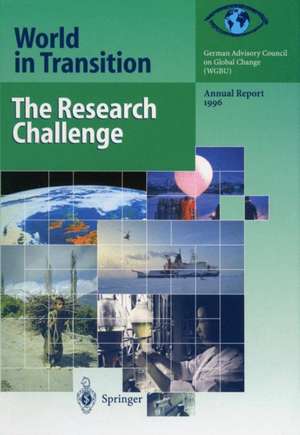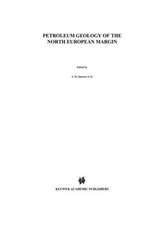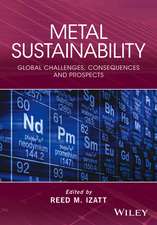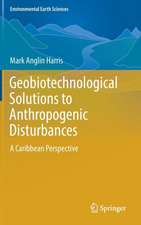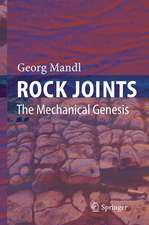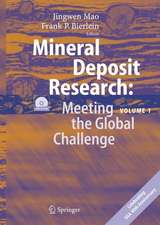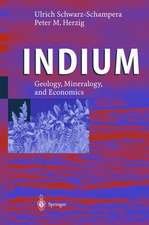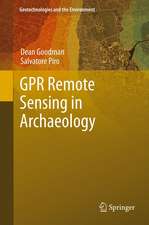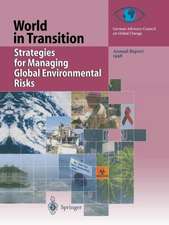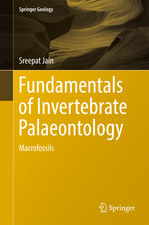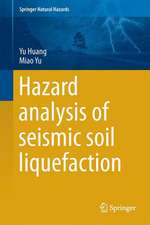The Research Challenge: Annual Report 1996: World in Transition, cartea 1996
Autor Kenneth A. Loparoen Limba Engleză Paperback – 28 sep 2011
Preț: 370.81 lei
Nou
Puncte Express: 556
Preț estimativ în valută:
70.96€ • 73.31$ • 59.06£
70.96€ • 73.31$ • 59.06£
Carte tipărită la comandă
Livrare economică 22-28 martie
Preluare comenzi: 021 569.72.76
Specificații
ISBN-13: 9783642644689
ISBN-10: 3642644686
Pagini: 220
Ilustrații: XV, 195 p.
Dimensiuni: 193 x 260 x 12 mm
Ediția:Softcover reprint of the original 1st ed. 1997
Editura: Springer Berlin, Heidelberg
Colecția Springer
Seria World in Transition
Locul publicării:Berlin, Heidelberg, Germany
ISBN-10: 3642644686
Pagini: 220
Ilustrații: XV, 195 p.
Dimensiuni: 193 x 260 x 12 mm
Ediția:Softcover reprint of the original 1st ed. 1997
Editura: Springer Berlin, Heidelberg
Colecția Springer
Seria World in Transition
Locul publicării:Berlin, Heidelberg, Germany
Public țintă
ResearchCuprins
Summary.- A Introduction.- B Status of Global Change Research, Unexplored Issues.- 1 International Global Change Research Programs.- 2 Global Change Research Programs — An International Comparison.- 3 German Research on Global Change (Current Status, Evaluation, Scientific Issues).- C New Guidelines for Environmental Research.- 1 Overview of the New Guidelines.- 2 Horizontal Integration: The Syndrome Concept.- 3. Relevance Criteria.- 4. Integration Principles.- 5 Syndrome Ranking.- 6 Designing a Syndrome-Based Research Structure: A Case Study on the Sahel Syndrome.- 7 Vertical Integration: Research on the Global Change Problem-Solving Process.- 8. Research Organization.- D Summary of Recommendations.- 1 The Current Situation.- 2 Priority Tasks in the Various Sectors of Global Change Research.- 3 Designing Global Change Research on the Basis of the Syndrome Approach.- 4 Organizational Recommendations.- 5 Prospects.- E References.- F Glossary.- G The German Advisory Council on Global Change.- H Index.
Textul de pe ultima copertă
Development and environment problems have reached such alarming proportions that the very survival of humanity is now subject to critical and unprecedented threats. So far, the scientific community has failed to deliver strategic responses adequate to this situation. Analyses produced by the separate disciplines are similarly inadequate due to the complexity of the problems involved and the intricate interlinkages between them. In its latest report, the German Advisory Council on Global Change (WBGU) criticizes Germany's global change research community for its lack of international orientation, its bias towards individual disciplines and for its weaknesses in translating scientific results into a form readily accessible to policymakers. The Council identifies alternatives for restructuring the research landscape, focusing primarily on a new "Syndrome Approach" for global change research. By applying this tool, scientists can systematically describe and analyze the "diseases" afflicting the Earth System, and thus elaborate response options. The 16 most important syndromess, or "clinical profilles" of Planet Earth have noww been identified.
